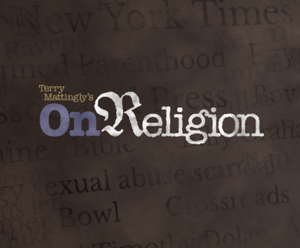
While doing groundwork for the pivotal South Carolina primary, Democrat Joe Biden went to a local church to do what he does on Sundays — go to Mass.
What happened next made headlines, raising an issue that looms over the president-elect’s personal and political lives. The priest at St. Anthony’s Catholic Church in Florence declined to give Biden communion.
“Holy Communion signifies we are one with God, each other and the Church. Our actions should reflect that,” said Father Rev. Robert E. Morey, in a press statement. “Any public figure who advocates for abortion places himself or herself outside of Church teaching. As a priest, it is my responsibility to minister to those souls entrusted to my care.”
The priest, a former attorney with the Environmental Protection Agency, ended by saying: “I will keep Mr. Biden in my prayers.”
Biden told MSNBC: “That’s just my personal life and I am not going to get into that at all.”
Nevertheless, Biden continued to make his faith — he is a “devout” Catholic in news reports — a key element of the campaign, as he has throughout his career. He also pledged to defend Roe v. Wade, to the point of codifying the decision into national law.
Catholic conservatives and liberals remain divided on how the church should respond, a tension demonstrated in a carefully worded statement by Los Angeles Archbishop José H. Gomez, president of the U.S. Conference of Catholic Bishops.
“The president-elect has given us reason to believe that his faith commitments will move him to support some good policies. This includes policies of immigration reform, refugees and the poor, and against racism, the death penalty and climate change,” said Gomez, after the recent online USCCB meeting.
However, it is obvious that Biden’s actions have clashed with “fundamental values that we hold dear as Catholics,” the archbishop added. This includes supporting the federal funding of abortions, the return of the Health and Human Services contraceptive mandate and passage of the Equality Act, a sweeping LGBTQ rights bill that could lead to “unequal treatment of Catholic schools,” said Gomez.
“We have long opposed these policies strongly. … When politicians who profess the Catholic faith support them, there are additional problems. Among other things, it creates confusion among the faithful about what the Church actually teaches on these questions.”
Meanwhile, Pope Francis called to congratulate the president-elect.
What happens when Biden reaches the White House? That’s a doctrinal, as well as political, question. The debate centers, in part, on a Catholic Catechism statement: “Formal cooperation in an abortion constitutes a grave offense.”
“Grave” is a crucial term, since Catholic Canon Law states that those who are “obstinately persevering in manifest grave sin are not to be admitted to holy communion.”
The current standoff has lingered since 2004, when Democrats nominated Sen. John Kerry, a Catholic liberal, for president. A committee of American bishops petitioned the Vatican for advice on the communion issue.
The committee’s leader was Theodore McCarrick, the archbishop of Washington, D.C. The ex-cardinal has since fallen into disgrace in a sex scandal involving teen-aged boys and seminarians.
Cardinal Joseph Ratzinger sent McCarrick letter that was, at first, private. In it, the man who is now Pope Benedict XVI argued that if prominent supporters of abortion continue to present themselves for communion — against the advice of their local bishops — the “minister of Holy Communion must refuse to distribute it.”
McCarrick claimed — without releasing the text — that this letter endorsed compromise. McCarrick also said he believed it would be wrong to “turn the Eucharist into a perceived source of political combat.”
Later, a public Ratzinger letter to the USCCB did appear to support a compromise approach.
Thus, McCarrick’s gambit created a bitter standoff that continues to this day, with bishops on both sides quoting different letters by the now-retired pope.
The current Catholic leader in Washington, D.C., is Archbishop Wilton Gregory, who on Nov. 28th will become the first African-American cardinal. He told Catholic News Service that Biden received communion during his years as vice president and, “I’m not going to veer from that.”
Gregory pledged to maintain a dialogue in which “we can discover areas where we can cooperate that reflect the social teachings of the church, knowing full well that there are some areas where we won’t agree.”










